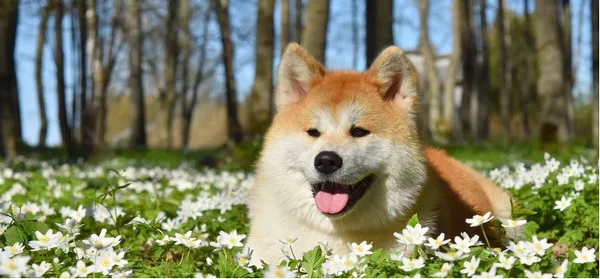Akitas are a majestic and powerful breed of dog known for their loyalty and impressive appearance. However, there is a common misconception that Akitas are inherently aggressive. In this comprehensive guide, we will explore the truth behind Akita temperament and aggression, shedding light on their behavior, potential triggers, and how to raise a well-balanced Akita. Understanding the nature of Akitas is crucial for responsible ownership and ensuring harmonious relationships with these magnificent dogs.
The Nature of Akitas
Akitas are a Japanese breed originally bred for hunting large game, including bears and boars. Their history has instilled in them a strong, confident, and fearless disposition. While these traits may be misinterpreted as aggression, it’s essential to recognize that Akitas are not inherently aggressive; they are, however, naturally protective.
Aggression vs. Protectiveness
Aggression and protectiveness are two distinct behaviors in dogs. Aggression is an uncontrolled, hostile reaction to perceived threats, while protectiveness involves defending their family or territory when they feel threatened. Akitas are protective by nature, which can be misunderstood as aggression when not properly managed.
Socialization
A key factor in an Akita’s temperament is socialization. Early exposure to various people, animals, and environments is essential to help them distinguish between friend and foe. Proper socialization can significantly reduce the likelihood of aggression stemming from fear or insecurity.
Temperament Variations
Like all breeds, individual Akitas have varying temperaments. Genetics, upbringing, and early experiences play a significant role in shaping an Akita’s personality. While some Akitas may lean towards a more protective nature, others can be outgoing and friendly.
Common Triggers for Aggression
Understanding what can trigger aggression in Akitas is crucial for responsible ownership and prevention. The following are common triggers for aggressive behavior in Akitas:
Fear and Anxiety:
Akitas may become aggressive if they feel threatened or cornered. It is vital to provide a safe and secure environment to minimize situations that can trigger fear-based aggression.
Territorial Instincts:
Akitas have strong territorial instincts. They may become aggressive when they perceive someone or something as a threat to their territory or family. Proper training and socialization can help manage this instinct.
Dominance Aggression:
Some Akitas may display dominance aggression, especially when not properly trained or when they perceive themselves as the pack leader. Consistent obedience training is essential to establish clear boundaries.
Protective Instincts:
Akitas are naturally protective of their family. While this is not inherently aggressive behavior, it can lead to confrontations if not properly managed. Training can help control their protective instincts.
Aggression Toward Other Animals:
Akitas have a high prey drive and may display aggression towards smaller animals. Early socialization with other pets can mitigate this behavior.
Raising a Well-Balanced Akita
Responsible ownership plays a vital role in shaping an Akita’s behavior. Here are some tips for raising a well-balanced Akita:
Early Socialization:
Expose your Akita to various people, animals, and environments from a young age. Positive experiences during this critical period can help reduce fear-based aggression.
Obedience Training:
Consistent and positive reinforcement-based obedience training is essential. Akitas respond well to firm but fair training methods.
Provide Mental Stimulation:
Akitas are intelligent dogs and require mental stimulation to prevent boredom and frustration, which can lead to aggressive behavior.
Exercise Regularly:
Akitas have a lot of energy and need regular exercise. Daily walks, playtime, and mental challenges can help keep them physically and mentally healthy.
Supervision:
Always supervise interactions between your Akita and other pets or unfamiliar individuals until you are confident in their behavior.
Seek Professional Help:
If you encounter behavioral issues or aggression problems you can’t manage on your own, consult a professional dog trainer or behaviorist for guidance.
Conclusion
In conclusion, Akitas are not inherently aggressive dogs, but they possess protective instincts rooted in their history. Responsible ownership, early socialization, obedience training, and understanding their triggers are key to raising a well-balanced Akita. By providing a loving, structured, and secure environment, you can enjoy a harmonious relationship with your Akita and dispel the misconception of inherent aggression surrounding this magnificent breed.]
Related Topics:

























